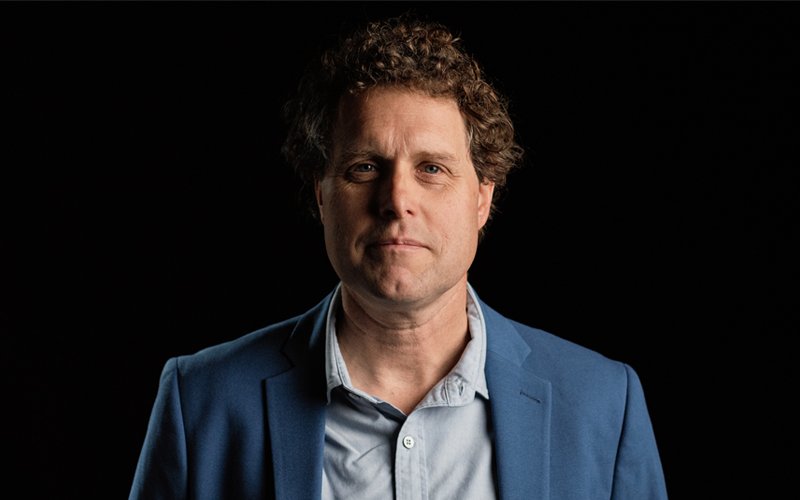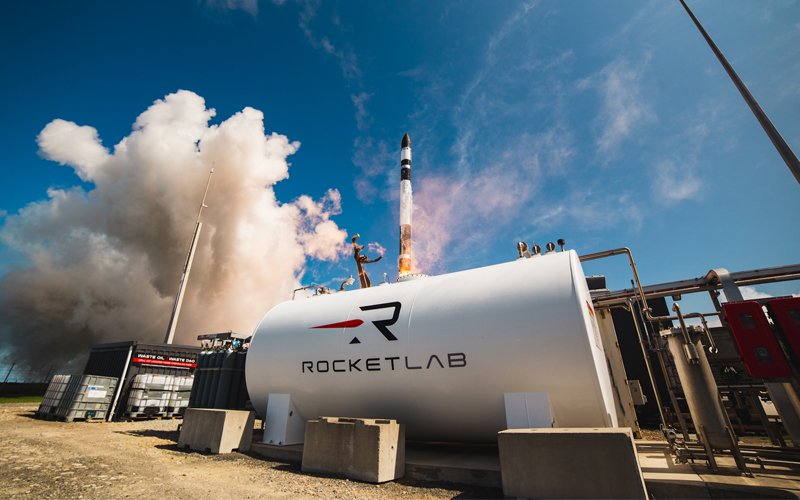5 Dec 2024
Sir Peter Beck on his journey in the space sector and his insights about engineers – spoiler alert: they make great businesspeople, but need to think bigger…
It’s the 1980s in Invercargill and a boy is standing outside his home gazing up into the night sky, pondering the origins of the universe.
That boy, recently knighted Sir Peter Beck, became the founder and CEO of Rocket Lab, the world’s second most prolific commercial launch provider (behind SpaceX), which designs, builds and launches advanced rockets and satellites.
“I always knew exactly what I wanted to do. As a child, I had two passions. One was engineering and the other was space,” he says.
“And when those two things collide, you naturally end up building rockets.”
Peter started experimenting with propellants when he was still at school.
“I felt that if I wanted to learn about these things, I had to do it myself. I was very good with my hands, so I went and did a tool and die making apprenticeship at Fisher and Paykel, and the precision of that trade gave me the skills to be able to build rockets and rocket engines.
“The plan was to get a trade, start building engines, and then eventually go to university. I felt that an engineer who has both a good practical and theoretical background is going to be really good engineer.”
After hours, Peter used the company’s workshop and tools to build rockets.
“I gave a rocket bike demonstration to the Fisher and Paykel Board of Directors. I’m not sure they were fully anticipating what they were about to see. They stood in the carpark and I strapped on my overalls and bicycle helmet and roared past them at 100 miles an hour on a push bike with a rocket engine.”
Would health and safety laws now prevent innovative engineers from such experimental opportunities?
“I hope not. The level of support that I was given there was just incredible. There were a lot of people who put a lot of trust in and faith in me, to be safe, but to experiment.”

Photo: Rocket Lab
After a spell at the then Department of Scientific and Industrial Research and bursting with ideas, Peter went to the United States to secure a job within the aerospace industry. But the New Zealander with no qualifications hit only walls, and on the flight home, recognising that the industry was dominated by large, expensive rockets incompatible with the growing demand for small satellite launches, Peter decided to start his own rocket company.
What gave him the confidence to do that in a small, isolated country with zero aerospace training or industry?
“It was the only logical conclusion I could reach.”
Peter says at first it was a company of one, but then slowly it grew bigger.
“All the engineers who came to work for us were incredibly brilliant and practical. Working on the first rocket that we sent to space in 2009, all were New Zealanders.”
“I don’t think we had any US employees until we shifted to the US in 2013, and the vast majority of the engineers were New Zealanders for a very long time. Even today, we have 700 people here in New Zealand of the 2,000 staff.”
Peter says rocket building is a risky business.
“But that’s the nature of it – you mitigate as many risks as you can, but not to the point where you stifle any movement forward. That’s the real art here, balancing the magnitude of the risk with moving quickly and doing innovative stuff.”
He continues: “If you look at our two biggest competitors, Elon Musk and Jeff Bezos, we’re never going to outspend those guys – we’re competing because we hustle more and we’re more innovative.
“That’s in the DNA of the company. If you ask anybody in the space industry, they’ll tell you Rocket Lab stuff always works. We build beautiful things.”
On the entrance of any of its factories, located in Aotearoa, the United States and Canada, it states that Rocket Lab goes to space to improve life on Earth.
“That’s what gets me up in the morning. You can literally put a little box of electronics in orbit around the earth and affect millions of people’s lives in a positive way.”

Rocket Lab’s Electron rocket lifts off from Launch Complex 1 in Māhia for the company’s 53rd mission. Photo: Rocket Lab
With 53 launches of the Electron rocket launching 197 satellites behind it, Rocket Lab is now developing the larger Neutron, complete with reusable components, and the Venus Life Finder satellite, which aims to explore Venus’s atmosphere for signs of organic compounds and microbes.
The space industry has recently experienced exponential and intrinsic change.
“When we first started, there was the hope and promise of the democratisation of space – the aerospace industry was owned and managed by governments. In my lifetime, we have absolutely witnessed that shifting. Now, if governments want to do something in space, they throw it open to industry.”
Most recently, Rocket Lab secured a contract with NASA to study the feasibility of retrieving rock samples from Mars.
“That was a government programme which reached the conclusion it was going to cost $11 billion in four years. They opened that up to industry and we have been awarded a study contract to see if we can do it faster and cheaper.”
Does the privatisation of space concern him?
“It’s definitely a new market and SpaceX holds the monopoly, but no monopoly survives the test of time.
“There’s enough regulation and consistency of actors around it that I don’t think it’s too out of control.”
The influence the space industry has on humanity is not to be underestimated.
“Think about space as being a kind of infrastructure,” says Peter. “It’s no different to pipes in the ground. I think a lot of people don’t realise how much they rely on space infrastructure in their daily lives because it’s hidden. And those who get to participate in it can have huge effect.”
He describes the company as “a lucky business”, adding: “We launch rockets, we build spacecraft and we also sell a lot of components onto spacecraft for just about all of the major NASA missions. The James Webb Telescope, the Mars Curiosity Rover, and the Mars Helicopter, all had Rocket Lab componentry on them.”
If you look at our two biggest competitors, Elon Musk and Jeff Bezos, we’re ever going to outspend those guys – we’re competing because we hustle more and we’re more innovative.
When asked what challenges engineers face, he sees none, only opportunity.
“There is huge opportunity for engineers to be a part of some really big programmes and make history.”
He believes having some business success stories encourages New Zealand engineers to design and launch commercially viable innovations.
“And teaching entrepreneurism. A lot of engineers come out of school and go to work, but not many of them think about starting their own business. But engineers make really good businesspeople – we’re very logical thinkers and think on multiple planes.”
He urges engineers to go out in the world and solve the big problems.
“Don’t solve little problems, solve big problems. The amount of effort, work and pain is exactly the same to solve a little problem as it is a big problem.”
Rocket Lab is actively involved in promoting STEM subjects, including school visits, scholarships and internships.
“We have the ability to engage at a level that very few industries do. Everybody is enamoured with space. I’m yet to witness when you can’t reach the most reluctant student. If you pass around something that’s been to space and back, you watch their eyes sparkle. The space industry gives you that platform to ask really big questions.”
He says Rocket Lab doesn’t draw distinction and encourages diversity of all kinds.
“We’re lucky to have a launch site in the Māhia Peninsula and we have some amazing stories of folks that started off doing things like mowing the lawns who are now incredibly educated and important people within the organisation.”
Does he still gaze into the sky at night and dream of visiting space himself?
“No. I am cursed with all of the knowledge of the risks and none of the courage. That’s someone else’s job.”
This article was first published in the December 2024 issue of EG magazine.




